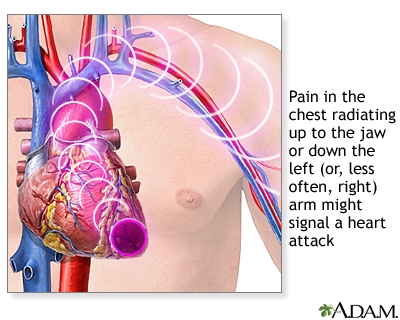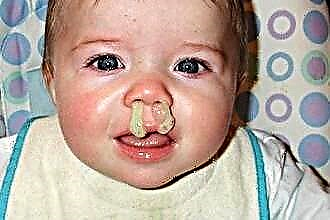At the first signs of rhinitis, it is important to immediately start treatment, since there is a high likelihood of complications and the transition of the disease to a chronic form, which is much more difficult to cure: in this case, most often, you cannot do without surgical intervention.
Symptoms
 A hallmark of any form of rhinitis is complete or partial nasal congestion. Also, the disease is most often accompanied by the following symptoms:
A hallmark of any form of rhinitis is complete or partial nasal congestion. Also, the disease is most often accompanied by the following symptoms:
- profuse liquid discharge from the nose, the amount of which increases or decreases for no apparent reason;
- coughing, redness of the throat due to constant irritation of its surface with mucus that gets into the throat from the nose;
- sneezing accompanying a severe runny nose;
- nasal, odor problems;
- general weakness, rapid fatigability;
- headaches, insomnia, lack of appetite;
- excessive sweating;
- night snoring and bouts of prolonged breath holding, which can lead to a significant decrease in the level of oxygen in the blood.
In chronic rhinitis, symptoms of the disease may increase in the acute stage and subside during remission. However, even in between acute attacks, nasal congestion persists.
Causes
There are several forms of vasomotor rhinitis:
- reflex;
- medicinal;
- hormone;
- idiopathic.
Depending on the type of disease, it is possible to identify the causes that cause the symptoms of the common cold.
Reflex rhinitis appears due to an incorrect reaction of the vessels of the nasal cavity to the effects of various stimuli. Allocate:
- Food runny nose resulting from the use of spicy, salty, too hot or cold food and drinks, alcohol abuse.
- Runny nose caused by exposure to cold (occurs with severe hypothermia of the whole body or individual parts of the body).
It should be borne in mind that short-term nasal congestion with a sharp change in temperature (for example, going out into the cold from a warm room) is a normal protective reaction of the body and should not cause concern.
- Rhinorrhea can occur when you stay in a room with very dusty or dry air for a long time, as a result of inhalation of strong odors (paint, varnish). In this case, vasomotor allergic rhinitis occurs, the treatment of which differs significantly from the treatment of other forms of the disease.
As for the drug form, most often its cause is the use of drugs. In this case, a runny nose occurs:
- with uncontrolled, prolonged (more than ten days) use of vasoconstrictor nasal drops;
Vasoconstrictor drugs are indicated in the complex treatment of rhinitis at an early stage of the disease, as an effective means for the rapid restoration of nasal breathing, and should be used according to the instructions or recommendations of the attending physician.
- as a result of the use of drugs used to treat hypertension (lowering blood pressure).
Due to hormonal imbalance in the human body, hormonal rhinitis can occur. The causes of this form of the disease can be:
- abnormalities in the work of the thyroid gland, in which the production of hormones decreases;
- pituitary adenoma;
- pregnancy, since during that period there is an increased production of female sex hormones.
As for the idiopathic rhinitis, this category includes all cases of rhinitis, the causes of which cannot be explained.
Often, a runny nose manifests itself against the background of various disorders in the functioning of the autonomic part of the nervous system, which contributes to deviations in the regulation of the tone of the blood vessels of the nasopharynx.
 Also among the common causes of chronic nasal congestion can be distinguished:
Also among the common causes of chronic nasal congestion can be distinguished:
- disturbances in the work of the vegetative part of the nervous system, the work of which affects the regulation of the tone of the blood vessels;
- effects on the body of viruses or bacteria;
- frequent nervous disorders, stress, overexertion;
- diseases of the gastrointestinal tract (for example, reflux disease);
- congenital and acquired injuries and anomalies of the structure of the nose and nasal septum.
Treatment
Treatment of any form of rhinitis should be based on the elimination of the causes that caused the symptoms of the disease. At the same time, both conservative methods with the use of medications and the use of alternative methods of treatment will be effective.
Medical treatment.
- At the first signs of the disease, it is recommended to start rinsing the nasal cavity using saline solutions (Aquamaris, Salin, Aqualor). These funds moisturize the nasal mucosa, reduce swelling, help remove mucus, and soften the crusts.
- Long-term use of drugs based on corticosteroid hormones (Nazarel, Fluticasone) is indicated for the treatment of chronic rhinitis. The advantages of this treatment are high efficiency, safety, and no addiction. These drugs are practically not absorbed into the bloodstream, and are approved for use even by children over the age of two.
- For the treatment of allergic rhinitis, it is necessary to eliminate the allergen, and also to use special antihistamines (Fenistil, Cromhexal, Zodak).
- With severe rhinorrhea caused by various irritating factors (dusty air, pungent odors, etc.), the use of special sprays containing Ipratropium bromide (Atrovent) is shown, the action of which is aimed at reducing the common cold.
Also, the complex treatment of chronic rhinitis, along with the use of medications, may include various procedures, for example:
- physiotherapy procedures (phonophoresis, electrophoresis, UHF, UST);
- acupuncture (acupuncture);
- injections into the nasal mucosa with hydrocortisone (nasal blockages);
- treatment with laser cauterization of enlarged vessels of the nasal cavity (vasotomy).
Along with general recommendations for the treatment of rhinitis, therapeutic procedures can be divided depending on the type of disease.
- treatment of a runny nose and nasal congestion caused by exposure to a sharp change in temperature is carried out by hardening the upper and lower extremities, using baths with cold water;
- treatment of medication rhinitis is carried out using hormone-containing sprays, which can effectively eliminate nasal congestion and abandon vasoconstrictor drugs.
Complications
If the treatment was not started on time or the methods used turned out to be ineffective, then there is a risk of complications and the transition of the acute stage of the disease to the chronic one. The most common complications of rhinitis include:
- chronic sinusitis, the symptoms of which are similar to those of rhinitis;
- the appearance of polyps - benign neoplasms that contribute to the thickening of the tissues of the nasal cavity, which often causes nasal congestion and obstruction;
- the occurrence of acute otitis media (inflammation of the middle ear);
- sleep disorder, rapid fatigue, headaches, frequent respiratory arrest during sleep, which is associated with constant nasal congestion.
Important! Snoring and respiratory arrest during night sleep are dangerous by the development of oxygen deficiency (hypoxia).
Prophylaxis
The following simple procedures are used as preventive measures that can significantly reduce the likelihood of a runny nose, as well as relapses of the disease.
 It is necessary to adhere to proper nutrition: eat food rich in vitamins and microelements, exclude strongly spicy, hot and cold foods from the diet.
It is necessary to adhere to proper nutrition: eat food rich in vitamins and microelements, exclude strongly spicy, hot and cold foods from the diet.- Avoid long-term stay in a room with strong odors, dusty air.
- Eliminate bad habits (smoking, drinking alcohol).
- Timely treat acute and chronic diseases, as well as abnormalities in the work of the nasopharynx, gastrointestinal tract, thyroid gland, etc.
- To live an active lifestyle. It is known that moderate physical activity (brisk walking, running) promotes better functioning of the autonomic part of the nervous system.
- Hardening with a contrast shower. A sharp change in temperature trains blood vessels, making their walls more elastic.
Traditional methods of treatment
Traditional medicine recipes are shown in the complex treatment of chronic rhinitis. Procedures using medicinal plants help to strengthen the immune system and reduce the severity of the main symptoms of the disease.
- Massage the nose in the area of the maxillary sinuses is carried out with gentle circular movements or light tapping of the fingers. This procedure helps to remove excess mucus from the nasal passages, reduce swelling and nasal congestion.
- In the treatment of chronic rhinitis, an ointment prepared on the basis of petroleum jelly and walnut leaves (10%) is effective. It is necessary to use such a remedy three times a day, alternately lubricating the nasal passages. Store the finished product in a cool place.
- To raise local immunity, fresh birch sap is used, which is buried alternately into the nasal passages, a few drops three times a day.
- Fresh beet juice is also used as nasal drops. Before use, the root crop is washed, peeled, grated, and then squeezed out. It is best to store the finished product in the refrigerator. The nose is instilled three times a day, a couple of drops into each nasal passage.
- Honey is a natural antiseptic; therefore, drops and nasal rinsing solution based on it are an effective treatment for rhinitis. To prepare the solution, take one spoonful of honey and dissolve it in a glass of drinking water. The resulting liquid is instilled into the nose or each nasal passage is washed in turn.
- Decoctions made from herbal preparations help to significantly speed up recovery and eliminate nasal congestion. Fees for the treatment of the nose usually include the following plants: St. John's wort, calamus root, oak bark, sage, mint, chamomile, calendula, horsetail. To prepare the drug, take a tablespoon of dry matter, pour a glass of water and boil for 10-15 minutes. Then they cool, filter and take on the dining bed three times a day or rinse the nasal passages.

 It is necessary to adhere to proper nutrition: eat food rich in vitamins and microelements, exclude strongly spicy, hot and cold foods from the diet.
It is necessary to adhere to proper nutrition: eat food rich in vitamins and microelements, exclude strongly spicy, hot and cold foods from the diet.

